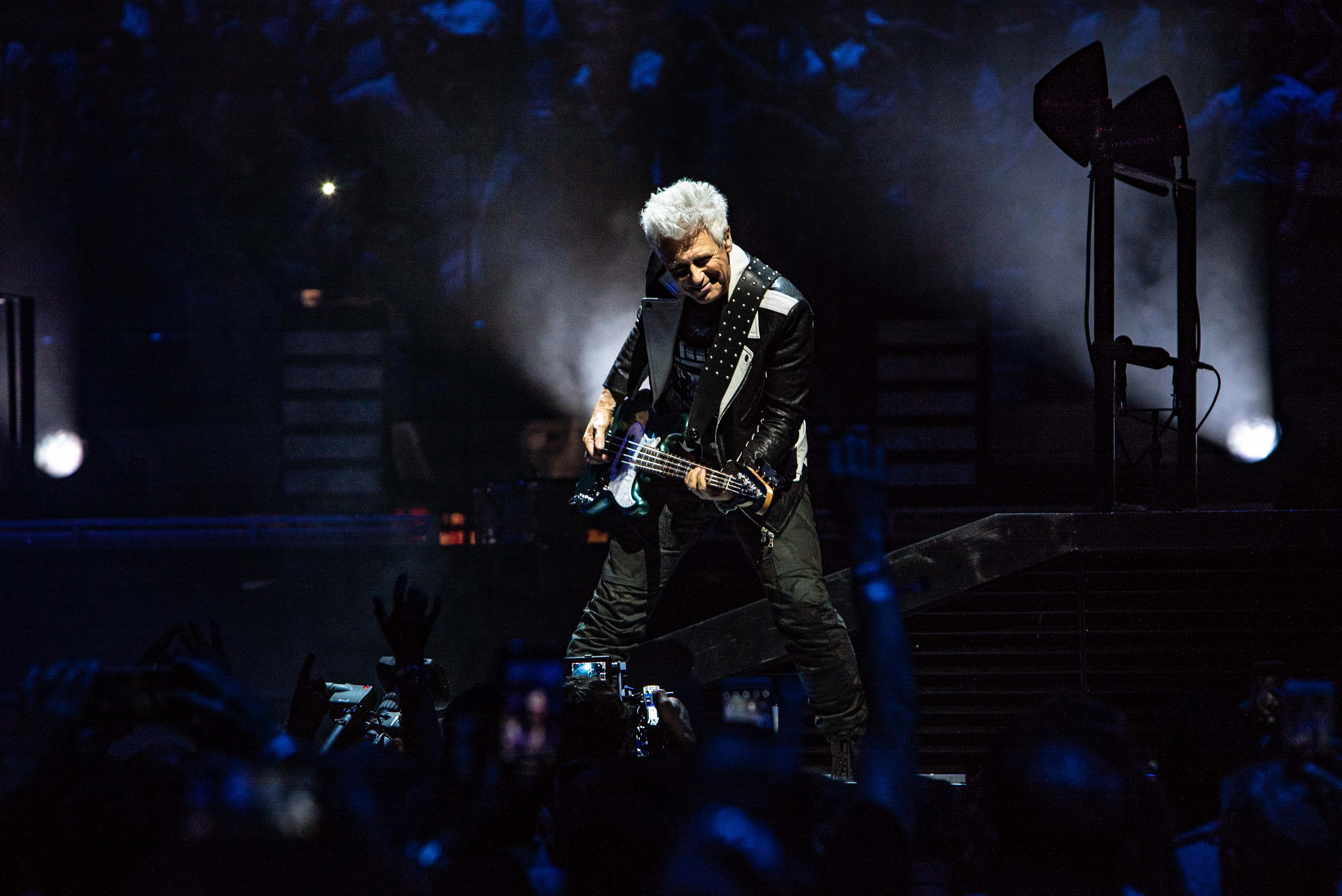There’s always something to be said about the grandeur of a U2 show. They’ve had everything from a giant claw, stadium-length runways, floor-to-roof mega screens and even a floating glass spaceship. But it is their taste for spectacle that has become the essence of the U2 identity and, naturally, makes every show a visually extraordinary affair.

U2 (Danny North)
Unsurprisingly, the Experience + Innocence tour took on a familiar feel, only this time in a slightly more subdued manner (for U2 standards, that is). On this tour, the band opted for a gargantuan, double-sided mechanical screen that doubled as a connecting platform between two stages and as a stunning visual backdrop.

U2 (Ross Stewart)
As the lights dimmed, a slow introduction showcased images of war over an excerpt of Charlie Chaplin’s The Great Dictator. On screen, devastating images of World War II slowly transitioned into scenes of positive social change. Soon the devastation was replaced with glimpses of people protesting for human rights, against war and poverty and for the future of their countries. It was an underlying theme of hope and resilience, which would become the motif for the entire show.

U2 (Ross Stewart)
Kicking things off with The Blackout, the band appears from inside the giant screen as miniatures before their giant digital silhouettes. As they wander to the main stage for I Will Follow and the iconic Beautiful Day, their minimalist stage looks like a recording studio – simple and clean. After a few songs frontman Bono steps up to the microphone for the first time. Looking at the thousands of people before him he says: “I remember our first show in front of 34 people at the Hope and Anchor in London…I just want to say that this is better.”

U2 (Ross Stewart)
But for all the grandiose effect, something about this show was particularly intimate. Playing on a bare stage – where only towards the end did a few banners and lights add to the backdrop – U2 gave everyone the sense they were part of a private audience. The middle part of the show was performed almost exclusively on the second ‘e’ stage where the audience could almost reach out and meet Bono’s fingertips. They performed along the entire length of the platform, moving between stages during Even Better Than The Real Thing and Pride, ensuring every person in the stadium felt a little bit closer to the action. Aside from a top hat, a couple of sequinned jackets and one very bold white and black-striped leather ensemble from bassist Adam Clayton, U2 performed as simple musicians and with very few pauses – even Bono’s on-stage banter was surprisingly subdued.

Adam Clayton of U2 (Ross Stewart)
Leading mostly with tracks from their latest release, there is a distinct lack of U2 belters which, for some, could be disappointing. But what is brilliant about this show is the feeling of distinct intimacy and scaled-back theatricalism. Of course, political messaging continued to be part of the show – one large EU flag symbolic of a “divided Europe” – but it was not to the same intensity as previous U2 performances. Instead, the the band’s messaging circled more around the idea of togetherness, rather than a call for rebellion.

U2 (Ross Stewart)
Wrapping up with an outstanding performance of One – a song that could make anyone’s hair stand on end – and There Is A Light it was a conclusion of such evocative simplicity. And while it was a far cry from the usual bombastic conclusions of the past this, for many, delivered the same brilliant effect.

U2 (Ross Stewart)
Live review of U2 at The O2 on 23rd October 2018 by Lilen Pautasso. Photography by Ross Stewart and Danny North.
Jeff Lynne’s ELO: Shining A Little Love Under Clear Blue Skies









Share Thing